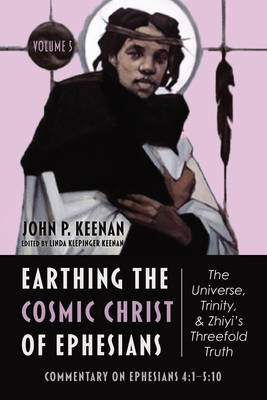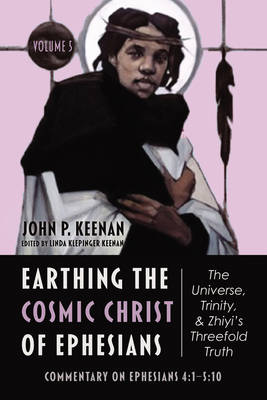
- Afhalen na 1 uur in een winkel met voorraad
- Gratis thuislevering in België vanaf € 30
- Ruim aanbod met 7 miljoen producten
- Afhalen na 1 uur in een winkel met voorraad
- Gratis thuislevering in België vanaf € 30
- Ruim aanbod met 7 miljoen producten
Zoeken
Earthing the Cosmic Christ of Ephesians--The Universe, Trinity, and Zhiyi's Threefold Truth, Volume 5
Commentary on Ephesians 4:1--5:10
John P Keenan
Hardcover | Engels
€ 80,45
+ 160 punten
Uitvoering
Omschrijving
This series reads Ephesians within its post-Paul trajectory but considers it also in light of a Mahāyāna Buddhist hermeneutic that is likely unfamiliar to most New Testament scholars. New Testament specialists rarely stray into theological issues outside the Jewish-Christian context, although that context itself is more and more distant from readers today. Academicians are prone to make universal affirmations and claims, and yet it seems that few scholars of Christianity consider the theological universe that exists beyond the bounds of their own familiar guild. And the rare attempts to look East beyond those bounds often result in caricatures of Buddhists and their teachings, much as early New Testament scholars caricatured "the Jews." Even more commonly, such distant, foreign traditions and their theologies are simply ignored, as though the history of the Christian presence in the eastern Mediterranean basin were coterminous with the entire world of meaning. Certainly, one is no more likely to make a name in New Testament scholarship by pondering Chinese Buddhism than to become famous in the field of Buddhology by engaging with a Greek New Testament text. Nevertheless, it is good fun. --John P. Keenan
Specificaties
Betrokkenen
- Auteur(s):
- Uitgeverij:
Inhoud
- Aantal bladzijden:
- 296
- Taal:
- Engels
Eigenschappen
- Productcode (EAN):
- 9781666708639
- Verschijningsdatum:
- 12/06/2025
- Uitvoering:
- Hardcover
- Formaat:
- Genaaid
- Afmetingen:
- 152 mm x 229 mm
- Gewicht:
- 562 g

Alleen bij Standaard Boekhandel
+ 160 punten op je klantenkaart van Standaard Boekhandel
Beoordelingen
We publiceren alleen reviews die voldoen aan de voorwaarden voor reviews. Bekijk onze voorwaarden voor reviews.








